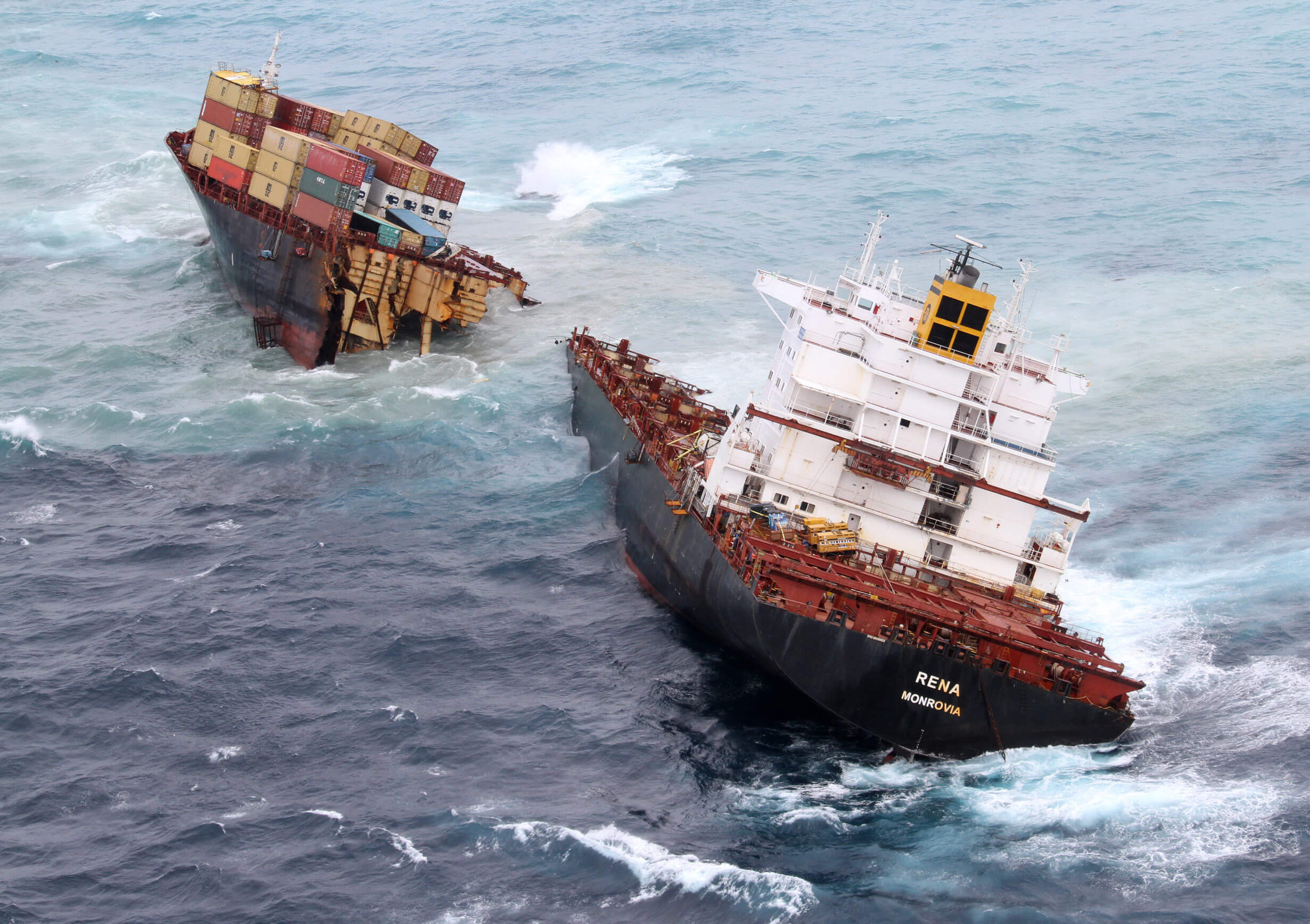The World Shipping Council (WSC) estimated that approximately 130 million, fully loaded containers, valued more than $4 trillion were transported internationally in 2016. The safe and successful transportation of goods across vast ocean distances relies heavily on accurate weight declaration, as well as the correct packing, stowing and securing of containers. However, even with expert packing and loading of goods and containers, severe weather and catastrophic events such as collisions and groundings can result in the loss of valuable cargo at sea. In Oct 2011 MV Rena ran aground on the Astrolabe Reef, in the Bay of Plenty, New Zealand en route to Touranga, eventually succumbing to the elements and splitting in two in Jan 2012. The New Zealand Environment Minister Nick Smith declared the incident the worst maritime disaster in the country’s history.
In their 2017 update, the WTC estimated that there were approximately 568 containers lost at sea per year between 2008 and 2016 to events that were not considered to be catastrophic. The WTC also estimated that 1,582 containers were lost at sea each year, during the same period, due to catastrophic events. The number of containers lost at sea is relatively minimal compared to the amount that successfully reaches their destination, but the loss of cargo can be financially devastating to small and large businesses alike and hence the importance of marine insurance for importers and exporters.
Marine cargo insurance provides coverage against the physical loss or damage of goods and livestock during import or export, to and from Australia. There are a multitude of policies available and choosing the insurance policy that best suits your requirements can be a complex process. It pays to seek expert advice as oversights in the level of coverage provided can be costly, especially in the event of a disaster. While every care is taken to manage and handle shipments with care, accidents and natural disasters can and do happen. Importers, exporters and handlers that do not obtain marine insurance for their international shipments are exposed to high financial risks.
As industry-recognised experts, Avion International Freight Forwarders understand the importance of insurance and refer clients to a reliable and trusted insurance company who are eager to help with any Marine insurance requirements. As per Standard Trading Conditions (STC), freight forwarders typically have limited liability for claims for damage or loss of goods while in their care. Separate cargo insurance is therefore essential and should be obtained prior to booking the shipment of any cargo. Marine insurance policies can cover the entire transportation process-over land and sea, and the type of coverage depends on your business needs, trading patterns and type of cargo.
The Future of International Shipping
International shipping is set to be revolutionised with the first autonomous, unmanned vessel launching in 2020. The Norwegian vessel will operate close to the Norwegian coastline as unmanned ships are not permitted in international waters at present. However, the United Nations (UN) International Maritime Organisation (IMO), initiated discussions to allow unmanned cargo ships to traverse the oceans. While this move could lead to job losses in the maritime sector, it would also result in cheaper shipping with fewer accidents and hence less expensive Maritime insurance.

A concept by Rolls-Royce- ROLLS-ROYCE-FLICKR
These advances are set to change the future of international shipping, but for the time being, our cargo ships are fully manned, and precious cargo is at the mercy of Mother Nature and human error. There are more than 6000 containers active on the seas globally at any given time, and this number is steadily increasing in response to continued growth in international trade.
Avion International Freight Forwarders is one of Australia’s most trusted transport companies specialising in freight consolidation services. Shippers benefit in several ways when consolidating shipments, but it is a specialist service that requires a knowledgeable freight forwarder who employs expert handlers. All freight forwarders have a ‘duty of care’ to protect their clients goods to the best of their ability. Avion offers a suite of logistics services including air freight forwarding for clients requiring a faster delivery time. Customers transporting valuable cargo by sea or air are always advised to independently obtain the appropriate Marine or Air Cargo insurance. Avion International refer clients to a specialised insurance company who can provide professional advice regarding the type and level of insurance cover required.
Whilst there are several benefits to freight consolidation such as faster transit times and reduced shipping costs, there are also risk factors that require consideration. One significant risk factor lies in the consolidation of mixed freight commodities. For example, a boiler machine may be packed into a container with furniture products, lighting, ceramics and glassware. This is a high-risk combination, but nevertheless this mixture of goods may occur. With their best interests in mind, clients are always encouraged to obtain consolidated cargo insurance regardless of the type and quantity of cargo being shipped.
The entire shipping container industry proactively implements improved safety measures to address increasing trade demands, but importers and exporters must take extra precautions to protect their cargo by obtaining reliable freight and marine cargo insurance.


